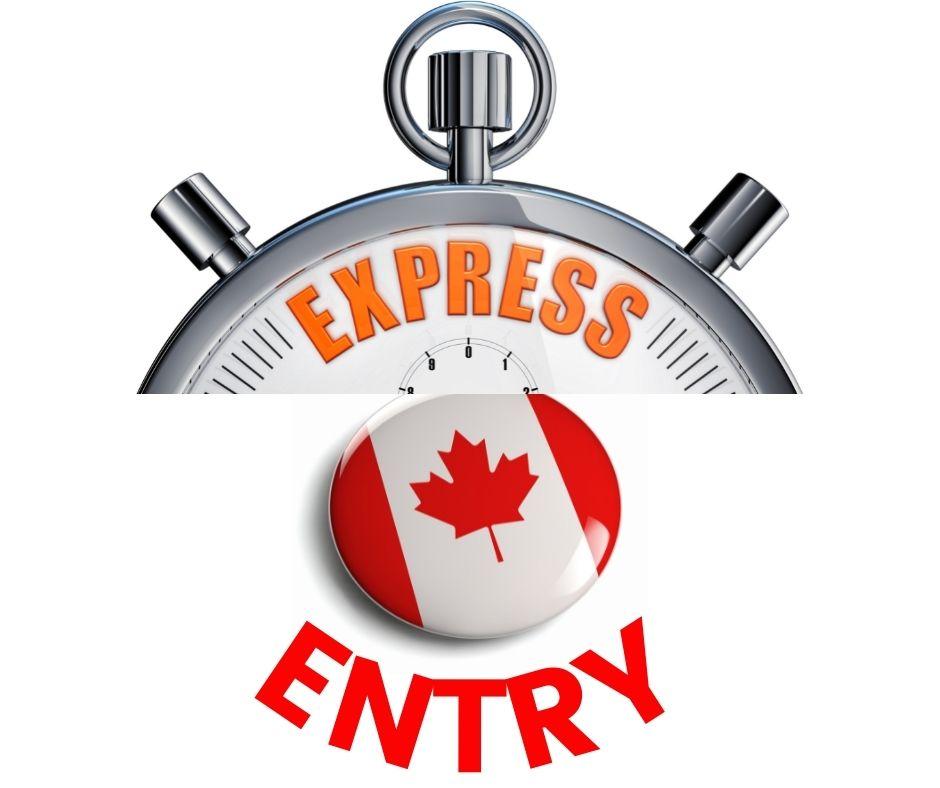Understanding the Requirements for Express Entry in Canada
Understanding the Requirements for Express Entry in Canada
Canada’s Express Entry system is a popular pathway for skilled workers looking to immigrate to the country. Launched in January 2015, Express Entry manages applications for permanent residence through three federal economic immigration programs: the Federal Skilled Worker Program, the Federal Skilled Trades Program, and the Canadian Experience Class. Since 2015, a lot has changed in Canada’s immigration landscape, particularly with the Express Entry system. Understanding the requirements for Express Entry in Canada is crucial for anyone looking to navigate this process successfully. Over the years, the system has evolved to address the changing needs of the Canadian labor market and ensure that immigrants can effectively contribute to society.
To qualify for Express Entry, candidates must meet specific criteria, including age, education, work experience, language proficiency, and adaptability. Understanding the requirements for Express Entry in Canada not only helps potential immigrants prepare their applications but also allows them to present their skills and qualifications in the best possible light.
Additionally, the government has implemented various policies and adjustments to streamline the process, making it more accessible for skilled workers. These changes reflect a broader commitment to ensuring that Canada’s immigration system remains responsive to the needs of both immigrants and the economy. For anyone considering making Canada their new home, being well-informed about the requirements for Express Entry is essential for a smooth transition and successful integration into Canadian society.
General Eligibility Criteria
Before diving into the specifics of each program, it’s essential to understand the overarching requirements for Express Entry:
- Language Proficiency: Candidates must demonstrate proficiency in one of Canada’s official languages (English or French). This typically involves taking an approved language test, such as the IELTS or CELPIP for English and the TEF for French, achieving a minimum Canadian Language Benchmark (CLB) score.Improving your language test score is one of the best and most efficient ways to maximize your Express Entry points. Language proficiency carries significant weight in the Comprehensive Ranking System (CRS) used for Express Entry, especially for those aiming for high CLB (Canadian Language Benchmark) scores in either English or French. For English, tests like the IELTS or CELPIP are used, while the TEF and TCF are common for French. Achieving higher scores in these exams can considerably boost CRS points, making it an ideal focus area for candidates.
For instance, candidates can earn up to 136 CRS points for language proficiency alone if they score well on all four sections (speaking, listening, reading, and writing). Additionally, strong language skills can provide “skill transferability” points when combined with other factors like education or Canadian work experience, further increasing one’s score.
In practical terms, raising language test scores can often be more straightforward than gaining additional work experience or higher educational credentials. Preparing for the language exam, especially with targeted study and practice, can therefore be a strategic choice for improving CRS scores efficiently.
- Educational Credentials: You must provide proof of your educational qualifications. If education was completed outside Canada, a credential assessment is required from designated organizations to ensure the qualifications are equivalent to Canadian standards. Try to get this as soon as possible as it does take time to obtain.
- Work Experience: You must have relevant work experience in a skilled occupation (classified under the National Occupational Classification, or NOC). This experience should typically amount to at least one year of full-time work in the past ten years. The more work experience, the more points you obtained.
- Age: Points are awarded based on age, with younger candidates generally receiving more points.
Specific Program Requirements
Each of the three programs under Express Entry has its own set of specific requirements:
- Federal Skilled Worker Program:
- Work Experience: A minimum of one year of continuous full-time (or equivalent part-time) skilled work experience.
- Skill Level: The job must be classified as NOC 0, A, or B.
- Points System: Candidates must score a minimum of 67 points based on criteria such as age, education, work experience, and adaptability.
- Federal Skilled Trades Program:
- Work Experience: At least two years of full-time work experience in a skilled trade within the last five years.
- Job Offer or Certification: A valid job offer for full-time work in Canada or a certificate of qualification from a Canadian authority in the skilled trade.
- Skill Level: The trade must be classified under NOC B.
- Canadian Experience Class:
- Work Experience: At least one year of skilled work experience in Canada within the last three years.
- Skill Level: The work must be classified as NOC 0, A, or B.
- Language Proficiency: Candidates must meet the minimum language requirements depending on the NOC category.
- Comprehensive Ranking System (CRS)
Candidates in the Express Entry pool are ranked based on the Comprehensive Ranking System, which assigns points for various factors, including:
- Language proficiency
- Educational qualifications
- Work experience (both in Canada and abroad)
- Presence of a job offer
- Provincial nominations
- Spouse or partner factors (if applicable)
ITA and Next Steps
Higher-ranked candidates receive invitations to apply (ITA) for permanent residence during periodic draws from the pool.
The Invitation to Apply (ITA) is a key step in Canada’s Express Entry system, signaling that a candidate is eligible to apply for permanent residence. After submitting an Express Entry profile, candidates are ranked in the Comprehensive Ranking System (CRS) pool based on factors like age, education, language proficiency, and work experience. Periodically, the Government of Canada holds draws from the pool, issuing ITAs to the highest-ranking candidates. Once invited, candidates have 60 days to submit a complete application for permanent residence, including required documents such as proof of work experience, educational credentials, and police certificates.
Receiving an ITA is a significant milestone in the immigration process, but it doesn’t guarantee approval. The candidate’s application undergoes rigorous review, and they must meet all eligibility and admissibility requirements.
I understand that the current points needed for Express Entry are very high, making it challenging for many skilled applicants. However, don’t lose hope—there are other potential pathways to Canadian permanent residency that could be a great fit based on your unique qualifications and goals. Programs like the Provincial Nominee Program (PNP) allow candidates to be nominated by a Canadian province, often with slightly different criteria, which can provide up to 600 additional points on your Express Entry profile. There are also specialized immigration streams for specific sectors, job offers, and areas with labor shortages.
Our team can help assess your profile to explore these alternative routes, and together, we can find the best options available to you. Don’t hesitate to reach out—there may be pathways that align well with your background, experience, and aspirations!
416.477.2545
Latest Immigrations News

December 5, 2025
THE ULTIMATE GUIDE TO HUMANITARIAN & COMPASSIONATE (H&C) APPLICATIONS IN CANADA
THE ULTIMATE GUIDE TO HUMANITARIAN & COMPASSIONATE (H&C) APPLICATIONS IN CANADA Understanding When, Why, and How to Apply for Permanent Residence on Humanitarian Grounds What Is an H&C Application? A Humanitarian and Compassionate (H&C) application is a last-resort pathway for individuals who are in Canada and do not [...]

September 11, 2025
Canada Super Visa: Step-by-Step Guide for Parents and Grandparents
For many Canadian citizens and permanent residents, bringing parents or grandparents to Canada for extended visits is more than just a wish, it’s a heartfelt need. While most people first consider the traditional visitor visa, there is another option designed specifically for family reunification: Super Visa applications. [...]

August 23, 2025
Intra-Company Transfer (ICT) Work Permit, Your Complete Guide to Working in Canada
For multinational companies, moving key talent across borders is often essential for growth and operational success. The Intra-Company Transfer (ICT) Work Permit provides a streamlined pathway to bring experienced employees to Canada without the time-consuming Labour Market Impact Assessment (LMIA) process. For foreign professionals, it’s more than [...]

Book a Conslutation
One of our Representatives will
assist you with your matter. Book Now!
Click here

Call us for
more Information
+1-416-477-2545
Toll Free: 1-877-820-7121
Click here

Write Us (Online Form)
Complete our form and one of our
Representatives will contact you.
Click here
Subscribe To Our Newsletter


